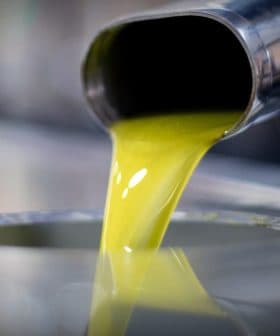Olive Oil Metabolites Linked with Improved Cardiovascular Disease Outcomes
New research published in Cardiovascular Diabetology found that metabolite profiles of virgin olive oil are linked to a reduced risk of cardiovascular disease in Mediterranean populations at high cardiovascular risk, based on data from the PREDIMED study in Spain. The study identified specific plasma metabolites associated with different types of olive oil consumption, highlighting the potential benefits of even small quantities of virgin olive oil for cardiovascular health in populations beyond those at high risk.
New research demonstrates a link between the metabolite profiles of virgin olive oil and reduced risk of developing cardiovascular disease in Mediterranean populations at high cardiovascular risk.
The study, published in Cardiovascular Diabetology, also confirmed metabolite profiles of virgin olive oil are associated with a lower risk of developing the disease than refined olive oil metabolite profiles.
The metabolomic profile we found for extra virgin olive oil was also inversely associated with the risk of contracting cardiovascular disease in the future.
The analysis was part of the PREDIMED study, a landmark clinical trial conducted in Spain that demonstrated the association between following a Mediterranean diet rich in extra virgin olive oil and cardiovascular health.
The study used data from about 2,000 participants, all at high risk of cardiovascular disease, who provided dietary information and blood samples.
See Also:Health NewsThe findings come from an investigation into the metabolomic profiles associated with the regular consumption of different types of olive oil. Metabolomics is the study of small molecules, known as metabolites, within cells.
Plasma metabolites are found in blood; researchers identified a pattern in their expression when olive oil is consumed.
Researchers employed machine learning to analyze the plasma metabolite profiles of olive oil consumption. They then correlated these profiles with the risk of type 2 diabetes and cardiovascular disease.
“Plasma metabolites are the result of various metabolic processes,” Marta Guasch-Ferré, co-author of the study and researcher at the University of Copenhagen’s public health department, told Olive Oil Times.
“Thanks to new metabolomic technologies, we can identify them just as in the past we identified biomarkers such as cholesterol or triglyceride,” she said. “Today, we can investigate those molecules and have a clearer picture of what is happening in the blood.”
“Plasma metabolites can change depending on factors such as what we eat. And they can help us predict the insurgence of diseases way ahead of their manifestation, even years or many years before,” Guasch-Ferré added.
While metabolites in the human body exist and form in many different states, exerting a range of distinct functions, researchers focused on those that correlated with nutrition, responded to dietary intake and could play a role in specific biological processes.
“We found some metabolites that were the same across the different kinds of olive oil, and others which were different and specific for each grade of olive oil,” Guasch-Ferré said.
“That is part of the novelty of this research. We identified what we call metabolomic signature, a cluster of different metabolites that include lipids, amino acids and others associated with different origins,” she added. “The metabolomic profile we found for extra virgin olive oil was also inversely associated with the risk of contracting cardiovascular disease in the future.”
Research from the PREDIMED study has already shown how extra virgin olive oil consumption has a healthy impact on cardiovascular disease.
“Adding the layer of new knowledge about the specific plasma metabolites, we can better understand the correlation between extra virgin olive oil and the biological processes it triggers. We can see those metabolites as a response to extra virgin olive oil intake,” Guasch-Ferré said.
Virgin olive oil consumption was found to lower cardiovascular disease risk, but it did not significantly affect type 2 diabetes risk. In contrast, the profile associated with refined olive oil consumption was associated with an increased risk of cardiovascular disease.
While the study focused on a sample of at-risk populations, the researchers noted how the beneficial impact of virgin and extra virgin olive oils goes way beyond such a specific sample.
“We all know how healthy extra virgin olive oil is for the general population,” Guasch-Ferré said. “What is less known, and it is part of ongoing research, is that even in small quantities, virgin olive oil consumption might carry significant benefits.”
“In populations who do not follow the Mediterranean diet or do not consume olive oil in the volumes typically consumed in olive oil-producing countries such as Spain or Italy, a healthy impact can still be detected,” she added.
For example, research published in 2020 in the United States suggested that consuming half a tablespoon of olive oil daily might prevent cardiovascular disease among people not considered at risk.
“In PREDIMED, average olive oil consumption was about 30 grams per day, while in the U.S. study, it did not exceed 10 grams,” Guasch-Ferré said. “Still, the benefits were there, and we could see how consuming olive oil was better than, for instance, butter.”
“From a public health perspective, there are significant benefits to quality olive oil consumption for all population segments,” she concluded.









